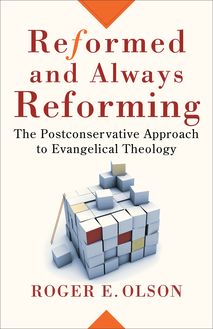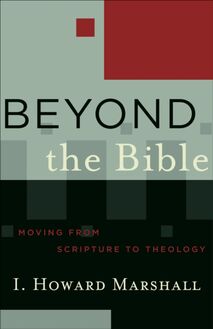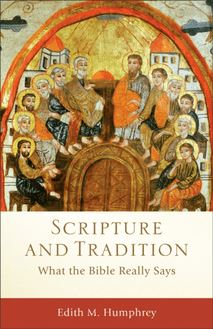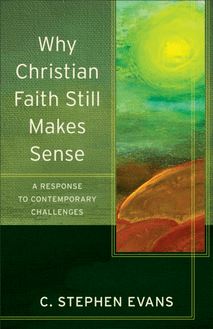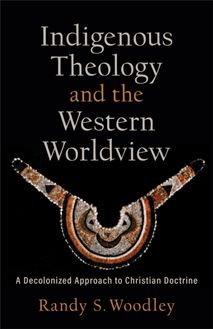-
 Univers
Univers
-
 Ebooks
Ebooks
-
 Livres audio
Livres audio
-
 Presse
Presse
-
 Podcasts
Podcasts
-
 BD
BD
-
 Documents
Documents
-
- Cours
- Révisions
- Ressources pédagogiques
- Sciences de l’éducation
- Manuels scolaires
- Langues
- Travaux de classe
- Annales de BEP
- Etudes supérieures
- Maternelle et primaire
- Fiches de lecture
- Orientation scolaire
- Méthodologie
- Corrigés de devoir
- Annales d’examens et concours
- Annales du bac
- Annales du brevet
- Rapports de stage
La lecture à portée de main
Vous pourrez modifier la taille du texte de cet ouvrage
Découvre YouScribe en t'inscrivant gratuitement
Je m'inscrisScripture and Tradition (Acadia Studies in Bible and Theology) , livre ebook
Découvre YouScribe en t'inscrivant gratuitement
Je m'inscrisEn savoir plus
Vous pourrez modifier la taille du texte de cet ouvrage
En savoir plus

Description
Informations
| Publié par | Baker Publishing Group |
| Date de parution | 15 avril 2013 |
| Nombre de lectures | 0 |
| EAN13 | 9781441240484 |
| Langue | English |
Informations légales : prix de location à la page 0,0634€. Cette information est donnée uniquement à titre indicatif conformément à la législation en vigueur.
Extrait
Acadia Studies in Bible and Theology
Craig A. Evans and Lee Martin McDonald, Series Editors
T he last two decades have witnessed dramatic developments in biblical and theological study. Full-time academics can scarcely keep up with fresh discoveries, recently published primary texts, ongoing archaeological work, new exegetical proposals, experiments in methods and hermeneutics, and innovative theological syntheses. For students and nonspecialists these developments are confusing and daunting. What has been needed is a series of succinct studies that assess these issues and present their findings in a way that students, pastors, laity, and nonspecialists will find accessible and rewarding. Acadia Studies in Bible and Theology, sponsored by Acadia Divinity College in Wolfville, Nova Scotia, and in conjunction with the college’s Hayward Lectureship, constitutes such a series.
The Hayward Lectureship has brought to Acadia many distinguished scholars of Bible and theology, such as Sir Robin Barbour, John Bright, Leander Keck, Helmut Koester, Richard Longenecker, Martin Marty, Jaroslav Pelikan, Ian Rennie, James Sanders, and Eduard Schweizer. Acadia Studies in Bible and Theology reflect this rich heritage.
These studies are designed to guide readers through the ever more complicated maze of critical, interpretative, and theological discussion taking place today. But these studies are not introductory in nature; nor are they mere surveys. Written by leading authorities in the field, Acadia Studies in Bible and Theology offer critical assessments of the major issues that the church faces in the twenty-first century. Readers will gain the requisite orientation and fresh understanding of the important issues that will enable them to take part meaningfully in discussion and debate.
© 2013 by Edith M. Humphrey
Published by Baker Academic
a division of Baker Publishing Group
P.O. Box 6287, Grand Rapids, MI 49516-6287
www.bakeracademic.com
Ebook edition created 2013
All rights reserved. No part of this publication may be reproduced, stored in a retrieval system, or transmitted in any form or by any means for example, electronic, photocopy, recording without the prior written permission of the publisher. The only exception is brief quotations in printed reviews.
Library of Congress Cataloging-in-Publication Data is on file at the Library of Congress, Washington, DC.
ISBN 978-1-4412-4048-4
Unless otherwise indicated, Scripture quotations are from the Revised Standard Version of the Bible, copyright 1952 [2nd edition, 1971] by the Division of Christian Education of the National Council of the Churches of Christ in the United States of America. Used by permission. All rights reserved.
Scripture quotations labeled EH are the author’s translation.
Scripture quotations labeled ESV are from The Holy Bible, English Standard Version® (ESV®), copyright © 2001 by Crossway, a publishing ministry of Good News Publishers. Used by permission. All rights reserved. ESV Text Edition: 2007
Scripture quotations labeled KJV are from the King James Version of the Bible.
Scripture quotations labeled NIV are from the Holy Bible, New International Version®. NIV®. Copyright © 1973, 1978, 1984, 2011 by Biblica, Inc.™ Used by permission of Zondervan. All rights reserved worldwide. www.zondervan.com
Scripture quotations labeled NLT are from the Holy Bible , New Living Translation, copyright © 1996, 2004, 2007 by Tyndale House Foundation. Used by permission of Tyndale House Publishers, Inc., Carol Stream, Illinois 60188. All rights reserved.
Scripture quotations labeled NRSV are from the New Revised Standard Version of the Bible, copyright © 1989, by the Division of Christian Education of the National Council of the Churches of Christ in the United States of America. Used by permission. All rights reserved.
The internet addresses, email addresses, and phone numbers in this book are accurate at the time of publication. They are provided as a resource. Baker Publishing Group does not endorse them or vouch for their content or permanence.
For my friends at North Toronto Corps, who taught me the infinite worth of Scripture, and where I first started asking questions about tradition.
Contents
Cover i
Series Page ii
Title Page iii
Copyright Page iv
Dedication v
Preface ix
Introduction 1
1. Lost in Translation? 25
2. Deadly Traditions: The Bible, the Rabbis, Jesus, and St. Paul 45
3. The Apostles, the Word, and the Letter 69
4. The Blessed Delivery: Receiving in Both Directions 91
5. Tradition as God’s Personal Gift 109
6. Holy Tradition versus Human Traditions: Discerning the Difference Today 133
Conclusion 159
Notes 172
Bibliography 173
Subject Index 176
Scripture Index 180
Cover 185
Preface
As I come to the conclusion of writing this book, I find myself enormously grateful for the many who have helped me, and continue to help me, to see the vibrancy of what has been given to the Church. “What do you have except that which you have received?” (1 Cor. 4:7 EH). In the context of this project, I especially am grateful for my husband Chris, who first challenged me to analyze what the Bible says about tradition and whom I ignored until I had an inexplicably sleepless night when the question came back to haunt me. Thanks are also due to the kind invitation of Prof. Craig Evans, who hosted me when I delivered the Hayward Lectures at Acadia University in the fall of 2010, as well as for the forbearance and searching questions of those who attended these initial presentations, which formed the nucleus of this book. It is necessary also to mention the thought-provoking discussion that took place in the PCUSA Wee Kirk Conference near Pittsburgh, where I “tried out” these ideas in October 2010, and the keen interest of students who worked with me during my spring 2011 class on Scripture and Tradition at Pittsburgh Theological Seminary. For several years, too, I have been spurred on by conversations on this and related topics with three more-advanced students who have been discussion partners with me since their graduation from PTS Matthew Bell, Timothy Becker, and Lisa Renée Sayre.
During the process of transformation from presentations to book, I have found invaluable the illuminating comments and gracious suggestions of the Rev. Dr. John Breck, whose own work on Scripture and Tradition has been instructive to me (as to many others). I hope that my volume will be accessible to the nonspecialist who is interested in tradition and this is a pressing concern to many in the Church without boring those for whom the topic is not new. My assistant, Kathy Anderson, read all of this manuscript and was invaluable in clarifying the prose and cleaning it up prior to its submission no, Virginia, there were no ancient manuscripts found in the Dead Sea! Further infelicitous details were discovered and suggestions made by Alan J. Kirk, my meticulous colleague in New Testament; Fr. Sean Taylor, my doughty comrade; and Bessie F. McEwan, my ever-perceptive mother. Thanks also for the labor of friends at Baker Academic, who partner with Acadia University in this series, and have done further necessary work to bring all this to fruition. As January draws to a close, I anticipate the Feast of the Presentation (Visitation) at the Temple, and recall the wonder I experienced three years ago when I first clearly envisioned holy Mary as the one who presented herself to the Lord, and who offers the living Word to us, as she did to Symeon: “Christ the coal of fire, whom holy Isaiah foresaw, now rests in the arms of the Theotokos as in a pair of tongs, and He is given to the elder” (Small Vespers); “Mary, you are the mystic Tongs, who has conceived in your womb Christ the live Coal” (Matins, Canticle 9).
Eve of the Feast of the Presentation 2012
Introduction
The Trouble with Tradition
Many people today have a love/hate relationship with tradition. Young people especially have gone beyond the twentieth-century love affair with all things “modern” and are beginning to feel wistful about lost family histories, forgotten ages, and remote times. In a rootless world, where millions live thousands of miles away from the home of their ancestors, and others do not even know where their forbears lived, many are turning again to historical fiction, in film or book, or rediscovering a love of genealogy. Family crests are reappearing, and advertisements at Christmastime speak with sentimentality about passing on (or even “creating”) family traditions. But there remains a knee-jerk reaction, a disdain for what is old: without thinking, we often play off tradition against vibrant creativity. There are a few sayings about tradition (some of which may be seen as sign-offs in emails) that show our ambivalence: Tradition means giving votes to the most obscure of all classes, our ancestors. It is the democracy of the dead. Tradition refuses to submit to that arrogant oligarchy [“elite rulers”] who merely happen to be walking around. (G. K. Chesterton) Tradition does not mean that the living are dead, it means that the dead are living. (Harold MacMillan) We don’t want tradition. We want to live in the present and the only history that is worth a tinker’s dam is the history we make today. (Henry Ford) Tradition is an explanation for acting without thinking. (Gracie McGarvie)
Of course, debated matters are seldom simple. And so some have tried to explain the complexity of tradition and why we have opposing reactions to it. For example, we can distinguish between a healthy regard for the great people and the good things of our past, as contrasted with either an unthinking acceptance or a slavishness to all things antiquarian just because they are old. In making just such a distinction, the late Jaroslav Pelikan quipped: “Tradition is the living faith of the dead; traditionalism is the dead faith of the living.” [1]
Even on a popular level, this tension for and against tradi
-
 Univers
Univers
-
 Ebooks
Ebooks
-
 Livres audio
Livres audio
-
 Presse
Presse
-
 Podcasts
Podcasts
-
 BD
BD
-
 Documents
Documents
-
Jeunesse
-
Littérature
-
Ressources professionnelles
-
Santé et bien-être
-
Savoirs
-
Education
-
Loisirs et hobbies
-
Art, musique et cinéma
-
Actualité et débat de société
-
Jeunesse
-
Littérature
-
Ressources professionnelles
-
Santé et bien-être
-
Savoirs
-
Education
-
Loisirs et hobbies
-
Art, musique et cinéma
-
Actualité et débat de société
-
Actualités
-
Lifestyle
-
Presse jeunesse
-
Presse professionnelle
-
Pratique
-
Presse sportive
-
Presse internationale
-
Culture & Médias
-
Action et Aventures
-
Science-fiction et Fantasy
-
Société
-
Jeunesse
-
Littérature
-
Ressources professionnelles
-
Santé et bien-être
-
Savoirs
-
Education
-
Loisirs et hobbies
-
Art, musique et cinéma
-
Actualité et débat de société
- Cours
- Révisions
- Ressources pédagogiques
- Sciences de l’éducation
- Manuels scolaires
- Langues
- Travaux de classe
- Annales de BEP
- Etudes supérieures
- Maternelle et primaire
- Fiches de lecture
- Orientation scolaire
- Méthodologie
- Corrigés de devoir
- Annales d’examens et concours
- Annales du bac
- Annales du brevet
- Rapports de stage
